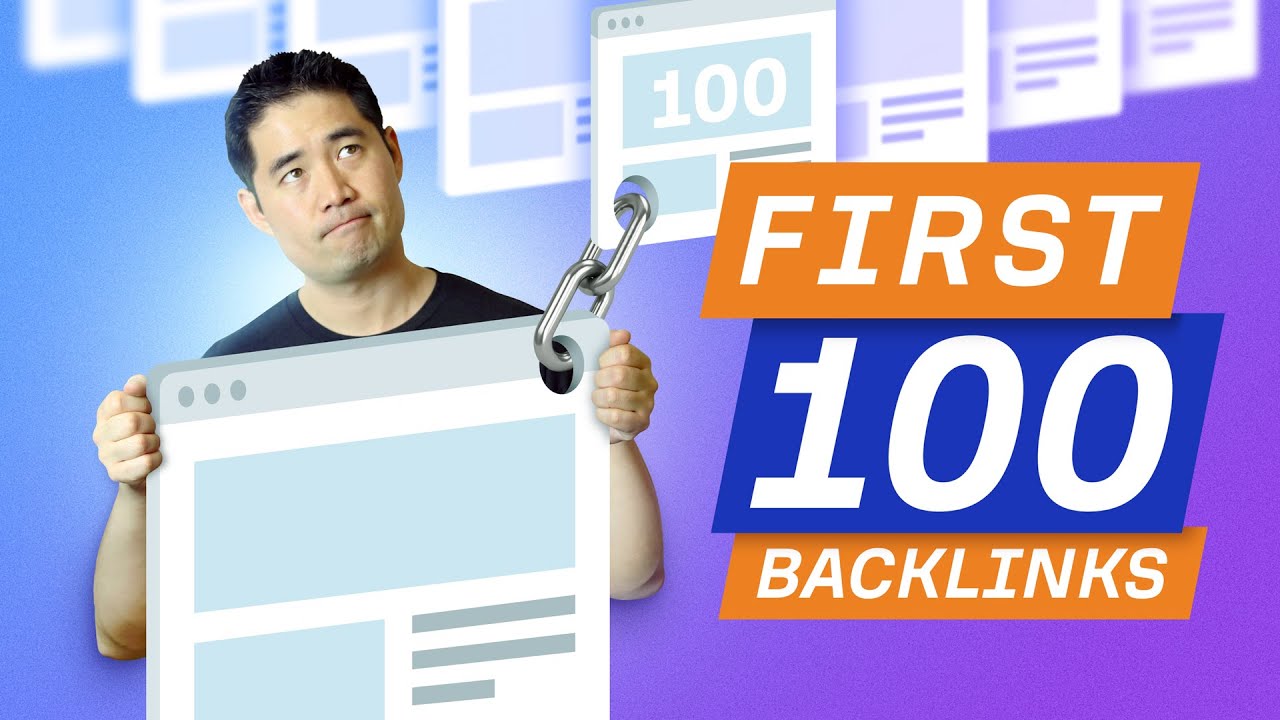In the vast digital landscape, Google remains the dominant search engine, guiding users to relevant and trustworthy information. To ensure accurate search results, Google employs various algorithms and ranking factors, one of which is Google Topic Authority. This concept measures the expertise and credibility of websites or web pages on specific topics.
By evaluating Topic Authority, Google aims to prioritize high-quality contentfrom reputable sources, providing users with reliable information. Understanding Google Topic Authority is essential for website owners and content creators seeking to improve their visibility and establish themselves as authoritative sources in their respective fields.
What Is Google Topic Authority?

Topical Authority in SEO - A complete guide (2022)
Google Topic Authority refers to the evaluation and assessment of a website or webpage's expertise, credibility, and influence on a specific topic. It is a ranking factor used by Google to determine the authority and reliability of content within a particular subject matter.
By analyzing various signals and factors, such as content quality, backlinks, social validation, user experiencemetrics, and expertise, Google aims to identify authoritative sources of information. Websites that demonstrate a strong Topic Authority are more likely to rank higher in search results, attracting a larger audience and establishing themselves as trusted sources in their respective fields.
The Importance Of Google Topic Authority

Topical Authority SEO Complete Guide (2023)
Google Topic Authority holds significant importance in the world of search engine optimization(SEO) and online content. Here are some key reasons why Google Topic Authority matters:
- Enhanced Search Visibility -Websites with higher Topic Authority are more likely to rank higher in search engine results pages (SERPs). When your website has a strong Topic Authority in a particular subject or niche, Google recognizes it as a reliable and trustworthy source of information. As a result, your content is more likely to be displayed prominently to users searching for relevant topics, leading to increased organic traffic.
- Credibility and Trustworthiness -Google Topic Authority is closely linked to the credibility and trustworthiness of your website. When your content consistently provides accurate, high-quality, and reliable information, users and search engines perceive your website as an authoritative source. This builds trust among your audience, establishing your brand or website as a go-to resource for valuable content.
- Increased User Engagement -Websites with high Topic Authority tend to attract more user engagement. Users are more likely to spend time on a website they perceive as authoritative and valuable. They may explore multiple pages, read additional articles, and interact with your content through comments, social shares, and backlinks. Improved user engagement signals to search engines that your website is valuable and relevant, contributing to further enhancement of Topic Authority.
- Competitive Advantage -Building and maintaining a strong Topic Authority gives you a competitive edge. When your website is recognized as an authoritative source, it differentiates you from competitors within your niche. Users are more likely to choose your website over others for information, products, or services, boosting your online visibility and potential conversions.
- Long-Term SEOBenefits -Google Topic Authority has a long-lasting impact on SEO. Unlike short-term ranking fluctuations, Topic Authority is built over time through consistent production of high-quality content, earning backlinks, and engaging with your audience. It provides a foundation for sustainable organic visibility, helping your website maintain higher rankings and visibility in the long run.
- Expanded Reach and Influence -As your Topic Authority grows, so does your reach and influence. Other websites and industry influencersare more likely to reference, cite, and link to your content, further boosting your credibility and exposure. This amplifies your brand's online presence and opens doors for collaboration opportunities, guest blogging, and partnerships within your industry.
- Better User Experience -Creating content with the goal of improving Topic Authority often leads to better user experience. When you focus on providing valuable, well-researched, and comprehensive content, it benefits your audience. Users appreciate content that is informative, engaging and addresses their needs, resulting in a positive user experience that encourages repeat visits and loyalty.
Determining Google Topic Authority
Google evaluates Topic Authority based on several factors, considering both on-page and off-page signals. Here are some key aspects that influence the determination of Topic Authority:
Content Quality And Relevance

The Importance of Creating Quality Content
When it comes to determining Google Topic Authority, content quality, and relevance play a significant role. Google places a strong emphasis on providing users with high-quality content that meets their needs and offers valuable information. Here's how content quality and relevance contribute to determining Topic Authority:
- Comprehensive and Well-Researched Content -Google values content that demonstrates depth and breadth of knowledge on a specific topic. Websites that produce comprehensive, well-researched content tend to have higher Topic Authority. This includes providing detailed information, covering different aspects of the topic, and addressing common questions or concerns.
- Unique and Original Content -Google favors content that offers a unique perspective or provides original insights. Creating content that stands out from competitors and offers something new to the audience can help establish Topic Authority.
- Accurate and Reliable Information -Content accuracy is crucial for building Topic Authority. Google seeks to prioritize websites that provide accurate and reliable information to users. Fact-checking, citing credible sources, and maintaining up-to-date information can contribute to higher Topic Authority.
- User IntentAlignment -Content that aligns with user intent and provides relevant answers to their queries is highly valued. Understanding the search intentbehind specific keywords or queries and creating content that satisfies that intent can help improve Topic Authority.
- Engaging and Valuable Content -Google considers user engagement metrics, such as time on page, bounce rate, and click-through rate, as signals of content quality. Producing engaging, valuable, and user-friendly content that keeps visitors on the page and encourages interaction can positively impact Topic Authority.
- Multimedia Integration -Incorporating relevant multimedia elements like images, videos, infographics, or interactive elements can enhance the user experience and increase content quality. It helps in providing visual explanations, improving engagement, and making the content more comprehensive.
Backlinks And Referrals

What are Backlinks and Why are They Important?
In addition to content quality and relevance, backlinks, and referralsare crucial factors in determining Google Topic Authority. Backlinks, also known as inbound links, are links from external websites that point to your content. Here's how backlinks and referrals contribute to determining Topic Authority:
- Quality and Quantity of Backlinks -Google considers the quality and quantity of backlinks as a strong indicator of a website's authority. When reputable websites link to your content, it signals to Google that your content is valuable and trustworthy. The more high-quality backlinks your website has, the higher your Topic Authority is likely to be.
- Relevance of Backlinks -Backlinks from websites that are topically relevant to your content are more valuable in determining Topic Authority. When websites within the same niche or industry link to your content, it strengthens your authority within that specific topic.
- Authority of Referring Websites -The authority of the websites referring to your content also matters. Backlinks from well-established, authoritative websites hold more weight in determining Topic Authority. Links from reputable sources can significantly boost your website's credibility and authority.
- Diversity of Referring Domains -Having backlinks from a diverse set of referring domains is considered beneficial. A diverse backlink profile indicates that your content is valued and referenced by a range of sources, strengthening your Topic Authority.
- Natural Link Building-Google values organic, natural link building rather than manipulative or spammy tactics. Earned backlinks that result from producing high-quality content, thought leadership, and engaging with your audience tend to have a more positive impact on Topic Authority.
Social Validation
Social validation is another important aspect in determining Google Topic Authority. It refers to the signals and engagement metrics derived from social mediaplatforms that indicate the relevance, popularity, and credibility of a website's content. Here's how social validation contributes to determining Topic Authority:
- Shares and Engagement on Social Media -The number of shares, likes, comments, and other forms of engagement that a piece of content receives on social media platforms can indicate its value and relevance. Content that generates substantial social engagement signals to Google that it is popular and resonates with users, which can positively influence Topic Authority.
- Social Media Mentions and References -When content from your website is mentioned or referenced on social media platforms by influential individuals, industry experts, or reputable sources, it can enhance your Topic Authority. Such mentions and references indicate that your content is highly regarded and trusted within your niche or industry.
- Social Signals and Amplification -Social signals, such as the overall social presence of a website or its content, can provide insights into its authority and influence. A strong social media presence, an active community, and a consistent stream of social signals can contribute to higher Topic Authority.
- Content Virality and Trending Topics -Content that goes viral or gains traction on social media due to its uniqueness, relevance, or timeliness can have a significant impact on Topic Authority. When content becomes popular and widely shared, it reinforces its credibility and authority in the eyes of both users and search engines.
- Social Proof and User Trust -The presence of social sharing buttons, social media follower counts, testimonials, or user-generated content on your website can act as social proof and enhance user trust. When visitors see that others have found value in your content and have engaged with it on social media, it can positively influence their perception of your authority within the topic.
User Experience And Engagement Metrics

Top UX Metrics You Should Be Using
User experience and engagement metrics are crucial factors in determining Google Topic Authority. Google considers how users interact with a website's content and their overall experience when assessing its authority within a specific topic. Here's how user experience and engagement metrics contribute to determining Topic Authority:
- Average Time on Page -The amount of time users spend on a webpage is an important engagement metric. If users spend a significant amount of time engaging with the content, it indicates that the information is valuable and relevant. Longer average time on a page can positively impact Topic Authority.
- Bounce Rate -Bounce rate refers to the percentage of users who leave a webpage without interacting further. A high bounce rate may indicate that the content is not engaging or relevant to users' needs. Websites with lower bounce rates are often considered to have higher Topic Authority as users are finding the content valuable and stay on the page longer.
- Click-through Rate (CTR) -CTR measures the percentage of users who click on a search result to visit a website. A higher CTR suggests that the website's content is compelling and relevant to users' search queries. Google may consider a higher CTR as an indication of the website's authority and relevancy within the topic.
- Pageviews and Navigation -The number of page views and the depth of navigation within a website can reflect user interest and engagement. If users navigate through multiple pages and explore various sections of the website, it signals their engagement and interest in the content. Higher page views and deeper navigation can contribute to improved Topic Authority.
- Interaction and Social Signals -User interactions, such as leaving comments, sharing content on social media, or subscribing to newsletters, demonstrate active engagement with the website. These interactions and social signals can indicate that the content is valuable and influential within the topic, positively impacting Topic Authority.
Expertise And Authoritativeness
Expertise and authoritativeness are fundamental elements in determining Google Topic Authority. Google aims to prioritize content from knowledgeable and authoritative sources to deliver reliable information to users. Here's how expertise and authoritativeness contribute to determining Topic Authority:
- Demonstrating Subject Matter Expertise -Websites that demonstrate expertise in a specific topic are more likely to have higher Topic Authority. This involves producing high-quality content that showcases in-depth knowledge, expertise, and a thorough understanding of the subject matter. Authoritative websites often go beyond surface-level information and provide valuable insights, analysis, or unique perspectives.
- Author Reputation and Expert Credentials -The reputation and expertise of the authors or contributors associated with the content can influence Topic Authority. Google considers the credentials, qualifications, and industry recognition of authors when evaluating the authority of the website. Established experts, thought leaders or recognized professionals can contribute to higher Topic Authority.
- Credible and Trustworthy Sources -Content that cites reputable sources and references authoritative publications, studies, or data helps establish credibility and authority. Backing up claims and statements with reliable sources enhances the trustworthiness of the content and contributes to higher Topic Authority.
- User Feedback and Reviews -User feedback, reviews, and ratings can influence Topic Authority. Positive reviews and feedback from users indicate that the website's content is valuable, trustworthy, and authoritative. It demonstrates that users find the content helpful and reliable, which can positively impact Topic Authority.
- Recognition from Peers and Industry -Recognition from peers and industry experts, such as awards, endorsements, or mentions, can enhance Topic Authority. When other reputable sources within the same industry or niche recognize a website's expertise and authority, it strengthens its overall authority and influence.
Strategies To Improve Google Topic Authority
Boosting your Google Topic Authority requires a strategic approach. Here are some effective strategies to enhance your website's authority:
Create High-Quality Content

How To Make YOUR Content Better
Creating high-quality content is one of the most effective strategies to improve Google Topic Authority. When your content is valuable, comprehensive, and relevant, it enhances your website's credibility and signals to Google that you are an authoritative source. Here are some strategies to create high-quality content:
- Thorough Research -Conduct in-depth research on the topic you're addressing. Gather information from reputable sources, studies, and industry experts to ensure accuracy and provide comprehensive coverage of the subject.
- Original and Unique Perspective -Offer a unique perspective or provide fresh insights on the topic. Differentiate your content from existing sources by presenting new angles, case studies, or personal experiences that add value for your audience.
- Well-Structured and Organized Content -Present your content in a logical and coherent manner. Use clear headings, subheadings, and bullet points to make it easier for readers to navigate and digest the information. Break down complex concepts into digestible chunks.
- Engaging Writing Style -Write in a conversational and engaging style that resonates with your target audience. Use storytelling, examples, and anecdotes to capture readers' attention and make the content more relatable.
- Visual Elements -Incorporate relevant visuals such as images, infographics, or videos to enhance the visual appeal and clarity of your content. Visual elements can help illustrate complex concepts and improve the overall user experience.
- Provide Actionable Takeaways - Offer practical advice, tips, or actionable steps that readers can apply in their lives or businesses. Providing actionable takeaways increases the value and usefulness of your content.
- Regular Updates and Maintenance -Keep your content up-to-date and relevant. Periodically review and update your articles to ensure the information remains accurate and reflects the latest industry trends or developments.
- Proofread and Edit -Thoroughly proofread and edit your content to ensure it is free from grammatical errors, spelling mistakes, and typos. Quality editing enhances the professionalism and credibility of your content.
- User-Centric Approach -Understand your target audience's needs, pain points, and interests. Tailor your content to address their specific questions and provide solutions that resonate with them. Engage with your audience by encouraging comments, feedback, and discussions.
- Diverse Content Formats -Explore different content formats such as blog posts, videos, podcasts, or interactive content to cater to various preferences and learning styles. Offering diverse content formats expands your reach and engagement.
Earn Quality Backlinks

How to Get your First 100 Backlinks
Earning quality backlinks is another essential strategy to improve Google Topic Authority. Backlinks from authoritative and relevant websites act as votes of confidence, indicating that your content is valuable and trustworthy. Here are some strategies to earn quality backlinks:
- Create Outstanding Content -Producing exceptional content is the foundation for attracting high-quality backlinks. When your content is informative, unique, and valuable, other websites are more likely to link to it as a valuable resource.
- Guest Blogging -Write high-quality guest posts for reputable websites in your niche. By offering valuable insights and expertise, you can earn backlinks in your author bio or within the content itself. Ensure that your guest posts align with the host website's guidelines and standards.
- Build Relationships -Engage with influencers, industry experts, and other website owners through networking, social media, and online communities. Building genuine relationships can lead to natural link-building opportunities as they reference or share your content.
- Provide Expert Quotes and Interviews -Offer yourself as an expert in your field to journalists, bloggers, or podcasters who may be looking for industry insights. When you provide valuable quotes or participate in interviews, they may include a link back to your website as a reference.
- Resource Link Building -Create comprehensive and valuable resources such as guides, tutorials, or industry reports. Reach out to relevant websites and let them know about your resource, suggesting it as a valuable addition to their content. If they find it helpful, they may link to it.
- Broken Link Building -Identify broken links on authoritative websites that could be replaced with your content. Reach out to the website owners or webmasters, informing them about the broken link and suggesting your relevant content as a replacement.
- Content Promotion -Actively promote your content through social media, email marketing, and outreach efforts. The more people who see your content, the higher the likelihood of it being shared and linked to by others.
- Participate in Industry Forums and Q&A Sites -Engage in industry-specific forums and Q&A sites where you can provide valuable answers and insights. Include a link to relevant content on your website when it's appropriate and adds value to the discussion.
- Encourage Social Sharing -Incorporate social sharing buttons on your content to make it easy for readers to share your articles on social media. When your content gets shared, it increases its visibility and the potential for earning backlinks.
- Monitor Brand Mentions -Set up alerts or use monitoring tools to track mentions of your brand or website online. When someone mentions your brand without linking to your website, reach out and kindly request them to include a backlink.
Engage On Social Media
Engaging on social media is an effective strategy to improve Google Topic Authority. Active participation on social platforms helps increase brand visibility, build relationships with your target audience, and generate social signals that can positively impact your website's authority. Here are some strategies to engage on social media:
- Choose Relevant Platforms -Identify the social media platforms where your target audience is most active. Focus your efforts on platforms like Facebook, Twitter, LinkedIn, Instagram, or niche-specific platforms that align with your industry.
- Consistent Posting -Regularly share high-quality and relevant content on social media. Create a content calendar to ensure a consistent posting schedule. Mix different types of content such as articles, videos, infographics, and curated industry news to keep your audience engaged.
- Spark Conversations -Encourage discussions and conversations by asking questions, seeking opinions, and responding to comments. Engage with your audience by replying to comments, addressing their queries, and fostering a sense of community.
- Share Valuable Content -Share not only your own content but also industry-related articles, blog posts, research papers, or videos from other reputable sources. By curating and sharing valuable content, you position yourself as a knowledgeable and trustworthy resource in your niche.
- Utilize Hashtags -Research and use relevant hashtags to increase the discoverability of your content. Hashtags help you reach a wider audience, join conversations, and connect with individuals interested in your topic.
- Visual Appeal -Leverage the power of visuals by incorporating images, videos, infographics, or eye-catching graphics in your social media posts. Visual content tends to attract more attention and engagement.
- Engage with Influencers -Identify influencers in your industry and engage with their content. Like, comment, and share their posts, and tag them when relevant. Building relationships with influencers can lead to increased visibility, potential collaborations, and opportunities for shared content.
- Monitor Mentions and Respond -Keep track of mentions of your brand or relevant keywords on social media. Respond promptly and professionally to comments, messages, and mentions, showing that you value and appreciate your audience's engagement.
- Run Contests and Giveaways -Conduct contests, quizzes, or giveaways on social media to encourage participation and generate buzz around your brand. This can help increase engagement, attract new followers, and create a positive brand image.
- Analyze and Optimize -Regularly analyze your social media metrics to understand what types of content perform well, which platforms drive the most engagement, and how your audience responds. Use these insights to optimize your social media strategy and make data-driven decisions.
Optimize User Experience

3 Strategies to Optimize User Experience
Optimizing user experience is a critical strategy to improve Google Topic Authority. When users have a positive experience on your website, they are more likely to engage with your content, stay longer, and share it with others. Here are some strategies to optimize user experience:
- Mobile-Friendly Design:Ensure that your website is optimized for mobile devices. Responsive design and mobile-friendly layouts make it easy for users to navigate and interact with your content on smartphones and tablets.
- Fast Page Load Speed:Improve your website's loading speed to provide a smooth and seamless experience for users. Compress images, minimize code, and leverage caching techniques to reduce load times. A fast-loading website enhances user satisfaction and encourages them to stay longer.
- Clear and Intuitive Navigation:Design an intuitive navigation menu that helps users find the information they need quickly. Use clear labels, logical hierarchy, and prominent search functionality to improve navigation and make it easy for users to explore your website.
- Readable and Scannable Content:Format your content in a way that is easy to read and scan. Use headings, subheadings, bullet points, and paragraphs to break down content into digestible sections. Consider using larger fonts and appropriate color contrast for better readability.
- Engaging Multimedia Elements:Incorporate multimedia elements such as images, videos, and infographics to make your content visually appealing and engaging. Multimedia content can enhance comprehension, provide additional context, and keep users interested.
- Minimize Intrusive Ads:Avoid intrusive ads that disrupt the user experience. If you display advertisements, ensure they are placed strategically and do not overshadow or hinder the accessibility of your content.
- Optimize Call-to-Action (CTA) Buttons:Make your call-to-action buttons visually distinct and compelling. Use action-oriented language and place them strategically to guide users toward desired actions, such as signing up for a newsletter or making a purchase.
- Accessible Design:Ensure your website meets accessibility standards to accommodate users with disabilities. Provide alt tags for images, use descriptive link text, and ensure compatibility with screen readers. A website that is accessible to all users improves usability and inclusivity.
- Interactive Elements:Incorporate interactive elements such as quizzes, surveys, or calculators to encourage user engagement. Interactive content keeps users actively involved and can increase their time spent on your website.
- Test and Optimize:Continuously test and optimize your website's user experience. Use tools like heatmaps, user recordings, and A/B testing to identify areas for improvement. Gather user feedback through surveys or usability testing to understand pain points and address them effectively.
Demonstrate Expertise
Demonstrating expertise is essential for establishing Google Topic Authority and gaining credibility in your industry. Here are some effective strategies to showcase your expertise:
- Create Comprehensive and In-Depth Content -Produce content that showcases your knowledge and expertise in a particular topic. Go beyond surface-level information and provide in-depth analysis, insights, and practical advice. This demonstrates your understanding of the subject matter and positions you as an expert in your field.
- Share Case Studies and Success Stories -Highlight your expertise by sharing real-life case studies and success stories. Showcase how you have helped clients or customers achieve positive outcomes through your expertise. Case studies provide tangible evidence of your capabilities and reinforce your credibility.
- Publish Research and Original Studies -Conduct original research or studies within your industry and publish the findings. This demonstrates your commitment to staying at the forefront of your field and contributes to the body of knowledge in your area of expertise. Research-backed content adds weight to your expertise and helps differentiate you from others.
- Participate in Industry Eventsand Speaking Engagements -Speak at conferences, webinars, or industry events to share your expertise with a wider audience. Public speaking engagements position you as a thought leader and allow you to showcase your knowledge in a live setting. Participating in panel discussions or delivering keynote speeches can boost your visibility and reputation.
- Guest Blogging and Thought LeadershipArticles -Contribute guest posts to reputable industry blogs or publications. Share your expertise through thought-provoking articles that offer unique insights or solutions to industry challenges. Guest blogging helps expand your reach, establishes your authority, and allows you to tap into new audiences.
- Participate in Interviews and Podcasts -Engage in interviews or podcast episodes as an expert guest. Answer questions, share your insights, and provide valuable information to the audience. Being featured in interviews or podcasts enhances your visibility, credibility, and positions you as an authority figure in your field.
- Publish E-books, Whitepapers, or Guides -Write and publish e-books, whitepapers, or comprehensive guides that delve deep into your area of expertise. These resources serve as valuable assets that demonstrate your expertise and provide actionable advice for your audience. Promote them through your website, social media, and relevant platforms to maximize their reach.
- Engage in Online Communities and Forums -Participate in industry-specific online communities, forums, and social media groups. Share your expertise by answering questions, providing insights, and engaging in discussions. Consistently contributing valuable information establishes you as a trusted expert and helps you build relationships within the community.
- Continual Learning and Professional Development -Stay updated with the latest trends, research, and advancements in your industry. Engage in continuous learning through attending workshops, webinars, or pursuing certifications. Demonstrating a commitment to ongoing professional development reinforces your expertise and keeps you at the forefront of your field.
- Collect and Showcase Testimonials -Gather testimonials and reviews from satisfied clients or customers. Display them on your website or social media platforms to highlight the positive experiences others have had with your expertise. Testimonials act as social proof and reinforce your credibility.
People Also Ask
How Does Google Determine Topic Authority?
Google determines Topic Authority by evaluating various factors such as content quality, backlinks, social validation, user experience metrics, and expertise.
Can I Improve My Website's Topic Authority?
You can improve your website's Topic Authority by creating high-quality content, earning quality backlinks, engaging on social media, optimizing user experience, and demonstrating expertise in your field.
Is Topic Authority Specific To Individual Webpages Or Entire Websites?
Topic Authority can be assessed for both individual web pages and entire websites. Google evaluates the expertise and credibility of the content within a specific topic.
How Long Does It Take To Build Topic Authority?
Building Topic Authority is a gradual process that requires consistent effort. It can take time to earn quality backlinks, create valuable content, and establish expertise in your field.
Does Topic Authority Affect Search Rankings?
Topic Authority significantly influences search rankings. Websites with higher Topic Authority are more likely to rank higher in search results, increasing their visibility and organic traffic.
Conclusion
Google Topic Authority plays a pivotal role in determining the credibility and influence of websites and webpages in search results. By investing in building Topic Authority, websites can improve their search rankings, attract a larger audience, and establish themselves as trusted sources of knowledge.